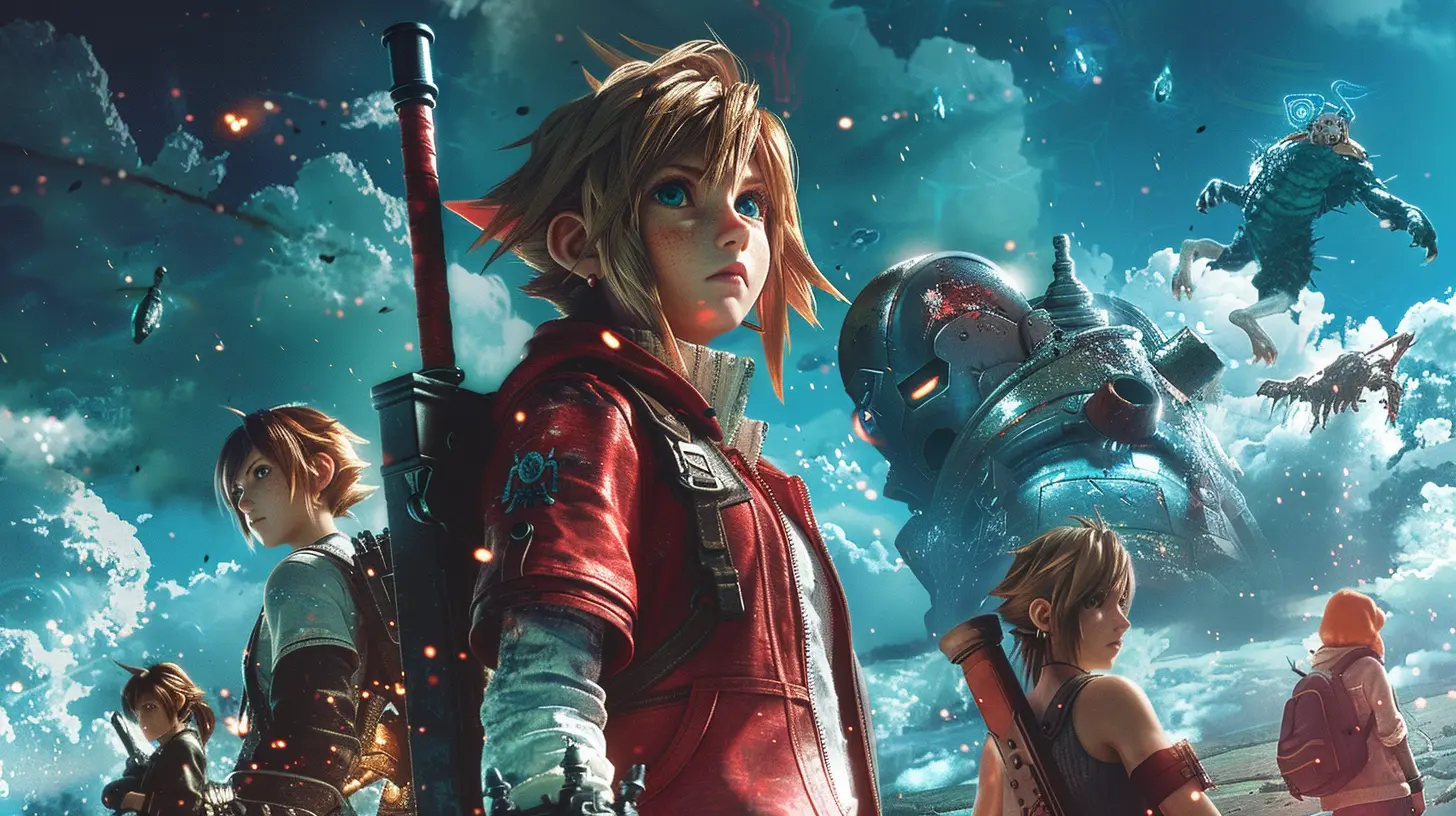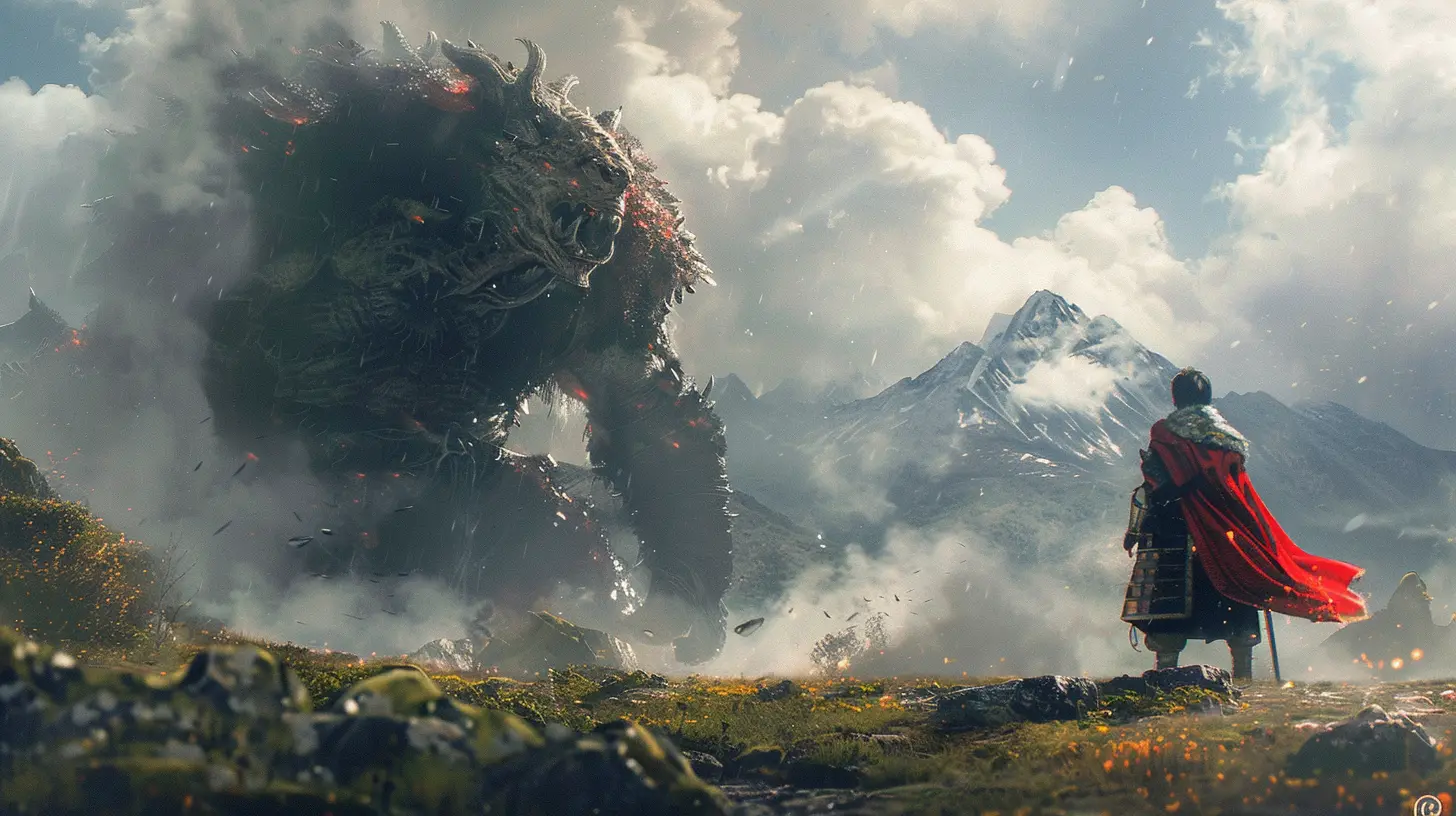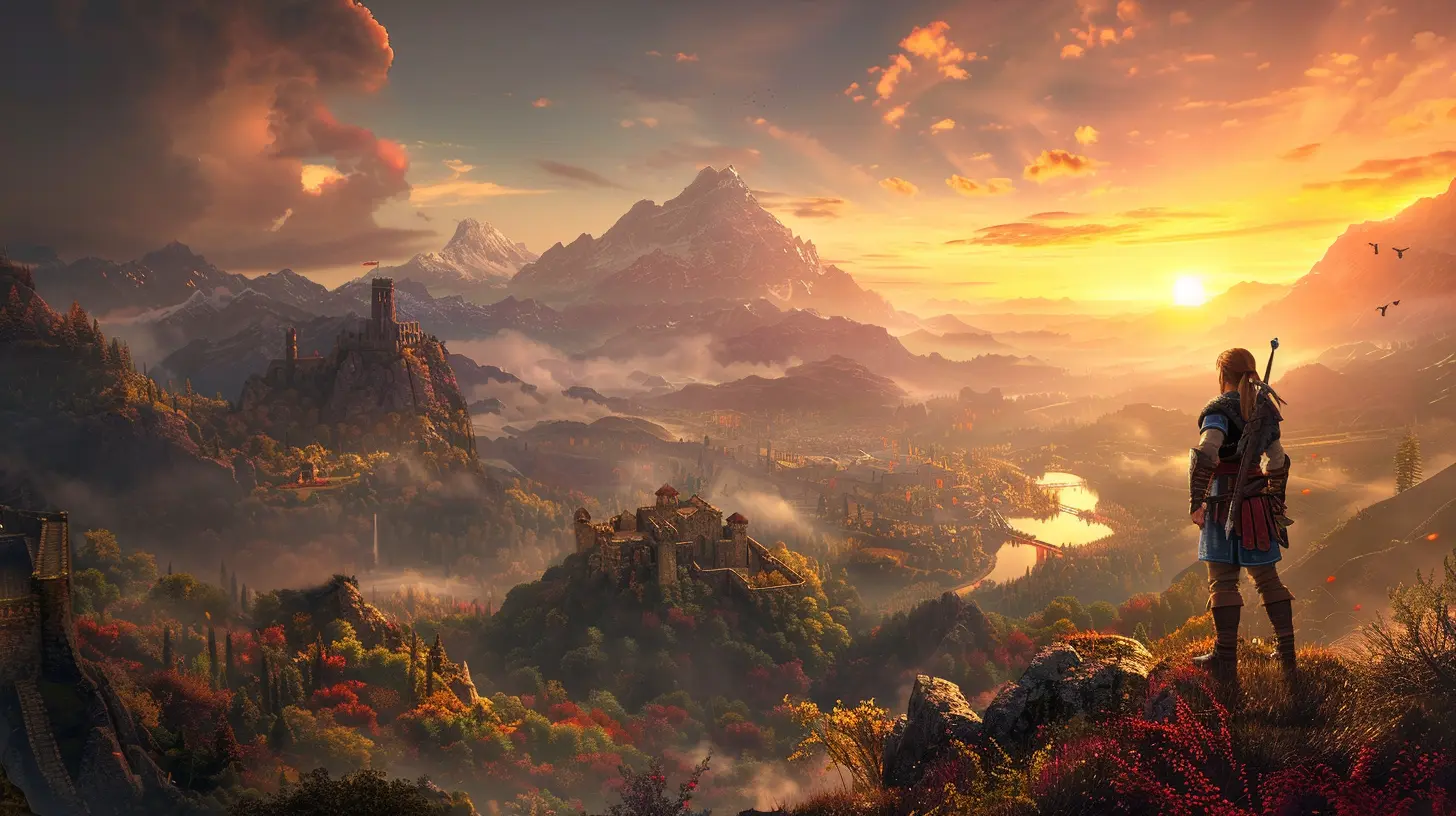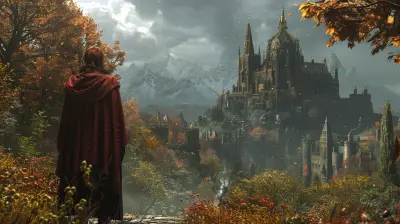Exploring the Cultural Impact of Fan Translations in Gaming
22 December 2024
When you think about gaming, what comes to mind? It's probably the stunning graphics, immersive storylines, or maybe even the epic battles. But what about the unsung heroes working passionately behind the scenes to bring games to audiences who otherwise couldn’t experience them? Yep, we're talking about fan translations. These dedicated fans create unofficial translations of games, often breaking language barriers and giving people worldwide a chance to dive into stories they’d never have access to otherwise.
But let’s not stop there. Fan translations don’t just fill linguistic gaps—they carry a profound cultural impact on the gaming industry, fan communities, and even the games themselves. So let's buckle up and unpack how fan translations have left their mark on gaming as we know it. 
What Are Fan Translations?
Before we dive into their cultural significance, let’s get the basics out of the way. Fan translations are user-created language adaptations of video games, usually done by unofficial translation teams or solo enthusiasts. Think of games released only in Japanese or Korean that, without fan translators, would remain completely out of reach for gamers who don’t speak those languages.These aren’t run-of-the-mill Google Translate jobs, mind you. Fan translators meticulously comb through every bit of dialogue, context, and even cultural nuances to craft a translation that feels authentic and enjoyable. Often, this involves reverse-engineering the game code—definitely not something the average gamer could do on a lazy Sunday.
The Cultural Bridge Fan Translations Build
Ever hear the saying, "Language shapes culture"? Well, fan translations are like building bridges between entirely different worlds. They bring games—and their stories, characters, and cultures—into the hands of global players who otherwise wouldn't have access.Take Japanese role-playing games (JRPGs) for example. Some of the most beloved JRPGs, like Mother 3, have never seen an official English release. But thanks to passionate fan translators, this quirky, heartfelt game has become a cult classic outside Japan. And with it comes exposure to Japanese cultural storytelling, humor, and even societal commentary.
Fan translations are more than just text—they’re invitations to experience another culture through the lens of gaming. It's like being handed a secret code to someone else’s world. Without these unofficial mediators, countless beautifully written games would remain locked behind a language barrier, effectively creating a monopoly of enjoyment for just one group of people.
Gaming as a Global Phenomenon
It’s no secret that gaming is one of the most globalized industries out there. Titles like The Legend of Zelda, Final Fantasy, or Persona have fans spanning continents. But not every game has a multimillion-dollar development budget that includes official localization for every language.Here’s where fan translations make a difference. They play a crucial role in globalizing the medium by removing language barriers. What’s even more powerful is that they often focus on niche or indie games that might not get official translations due to their small audiences. Yet these are the games that can pack the most cultural significance.
Think of it this way: Fan translators let players be part of niche fandoms that would’ve otherwise stayed completely isolated due to language restrictions. A small circle of Japanese players suddenly becomes a global community when the game becomes accessible to English, Spanish, or even Polish speakers. Fan translations turn individual islands of fandom into one big, interconnected world. How cool is that?
Challenging the Gaming Industry
Let’s get real—fan translations haven’t always been a smooth ride. In fact, they’ve sparked some serious debates within the gaming industry. On the one hand, developers appreciate passionate fans who go to great lengths to bring more exposure to their games. On the other, there’s the legal gray zone that fan translations often occupy.You see, translating a game without the developer’s permission is technically a copyright issue. Some companies turn a blind eye, even embracing fan translations as free advertising. Others, however, see them as competition and will issue cease-and-desist letters faster than you can say, “localization.”
Despite this, fan translations have also pushed the industry to do better. They’ve shown developers there’s real demand for localized versions of their games. Take Phoenix Wright: Ace Attorney - Trials and Tribulations. Before its official English release, a fan-translated version proved that there was a large, eager audience for the game, eventually sparking the franchise’s success in the West.
It’s a bit like showing up to a restaurant with your favorite homemade sauce in hand—sure, you’re stepping on the chef’s toes, but you’re also politely screaming, “We NEED this flavor on the menu!” Fan translators are, in a sense, the uncompensated taste-testers of the gaming world.
Preservation of Gaming History
Fan translations also play a key role in preserving gaming history. Did you know some games are so old or obscure that their official developers don’t even exist anymore? Without fan translators stepping in, these games would vanish into oblivion.Take Terranigma, a cult-classic SNES game released in Europe and Japan in the ‘90s, but never officially in North America. Fan translations of German or Japanese copies into English have kept the game alive, introducing it to newer generations.
In this sense, fan translations are almost like curators in a gaming museum. They ensure hidden gems stay alive in gaming’s collective consciousness. Without them, many pieces of gaming history would be nothing more than forgotten relics buried in time.
Fan Translations Fuel Creativity
It doesn’t stop at translations. Sometimes, fan translators go above and beyond to modify or enhance the original game. They might rewrite clunky dialogue, fix glitches, or even add content. In this way, fan translations can sometimes outperform official localizations.Take the infamous Final Fantasy VI mistranslation, where "Son of a submariner!" became a goofy insult in English. Fan translations corrected such humorous missteps, giving the community a more authentic (and often more polished) experience.
The impact isn't just on the games themselves—it’s on the translators, too. Many people who got their start in fan translations went on to work in game localization professionally. So in a way, fan translations aren’t just enriching gaming culture; they’re also nurturing the talent that shapes its future.
The Emotional Connection
The cultural impact of fan translations goes deeper than just text on screen or game sales. It’s about the emotional bond fans share with these games. There’s something uniquely touching about someone dedicating thousands of hours to translate a game—not for profit, but so others can experience the joy they felt playing it.It’s like someone baking you a cake just because they know you’d love the taste of it. In some ways, fan translations turn gaming into an act of communal love—a global gift exchange where passion and creativity are the currency. The translators might never meet the players enjoying their work, but the connection is there, just the same.
The Future of Fan Translations
So, where does this leave us? With advancements in AI translation technology, some might argue that fan translations could one day become obsolete. But here’s the catch: AI lacks the nuance, empathy, and cultural understanding that human translators bring to the table.Fan translations have always been about more than just words—they’re about preserving the soul of the game, cultural quirks, and all. That’s something no algorithm can replicate.
As gaming continues to grow as a global medium, fan translations will likely remain a vital part of its ecosystem. They’ll keep inspiring fans, bridging cultures, and fueling creativity for years to come.
Wrapping It Up: Why Fan Translations Matter
Fan translations are so much more than “unofficial” versions of games. They’ve shaped the way we view gaming as a global, interconnected medium. They’ve opened doors to new cultures, preserved gaming’s history, and even nudged the industry toward better localization practices.At their core, these translations represent the purest form of fandom—the kind that transcends language barriers and turns gaming into a shared human experience. So next time you boot up a fan-translated game, take a moment to appreciate the thousands of hours of dedication that went into it. Gaming wouldn’t be the same without these unsung heroes.
all images in this post were generated using AI tools
Category:
Gaming CultureAuthor:

Francesca West
Discussion
rate this article
9 comments
Grayson Pope
What a delightful read! The exploration of fan translations showcases the vibrant community spirit in gaming. It's amazing how these passionate efforts not only preserve beloved titles but also bridge cultures, allowing gamers worldwide to connect and share unforgettable experiences. Keep inspiring us!
March 9, 2025 at 4:58 AM

Francesca West
Thank you! I'm glad you enjoyed the article and appreciate the important role fan translations play in fostering community and cultural exchange in gaming.
Astraea Wilkerson
What a fascinating read! Fan translations truly enrich gaming experiences and bring diverse cultures together. It's amazing to see how passion can transcend language barriers! 🎮🌍✨
February 3, 2025 at 6:03 AM

Francesca West
Thank you! I'm glad you enjoyed the article. Fan translations indeed play a crucial role in making games accessible and fostering cultural exchange. 🎮🌍✨
Zephyris Pratt
Lost in translation? Please!
January 27, 2025 at 3:26 AM

Francesca West
Thank you for your comment! While some nuances may be lost, fan translations often bring communities closer and make games accessible to a wider audience.
Elise McDowell
This article highlights the significant role fan translations play in preserving and sharing gaming culture. By bridging language barriers, they enhance accessibility and foster appreciation for diverse narratives, ensuring that more players can experience the richness of global gaming communities.
January 17, 2025 at 5:22 AM

Francesca West
Thank you for your insightful comment! I completely agree—fan translations are vital in making gaming culture more inclusive and enriching the experiences of players worldwide.
Tia McClary
Fan translations play a vital role in preserving and sharing gaming culture, enabling broader access and appreciation for titles that might otherwise remain overlooked.
January 4, 2025 at 5:53 PM

Francesca West
Thank you for your insight! I completely agree—fan translations are crucial for promoting accessibility and celebrating diverse gaming experiences.
Ford Conrad
Great article! Fan translations play a vital role in making games accessible and preserving cultural narratives. It’s fascinating to see how they bridge gaps between developers and global audiences.
December 27, 2024 at 3:43 PM

Francesca West
Thank you! I'm glad you enjoyed the article. Fan translations truly are essential in connecting diverse cultures and preserving gaming's rich narratives. Your insights highlight their importance beautifully!
Lisette Wallace
Fan translations have significantly enriched gaming culture, fostering accessibility and preserving niche titles. They bridge language barriers, enhance community engagement, and highlight the importance of diverse voices in gaming.
December 25, 2024 at 4:38 AM

Francesca West
Thank you for your insightful comment! I completely agree that fan translations play a crucial role in making games accessible and preserving diverse titles, enriching our gaming culture in the process.
Jett Thomas
Fan translations: where pixels meet passion! It’s like turning a soup of code into a gourmet dish, sprinkling in culture, and serving it with a side of nostalgia!
December 24, 2024 at 5:36 AM

Francesca West
Thank you! Fan translations truly do blend technical skill with cultural depth, enriching the gaming experience and bringing nostalgia to life.
Keira Carter
Fan translations enrich gaming culture and foster community connections.
December 23, 2024 at 5:39 PM

Francesca West
Absolutely! Fan translations not only make games accessible to diverse audiences, but they also create a sense of community, allowing players to share their experiences and passion for gaming across different cultures.
MORE POSTS

Why Some Games Get Season Passes Right (And Others Don’t)

The Role of Destruction Mechanics in Elevating Gameplay

A Beginner's Guide to Sim Racing Setups

Season Passes and the Growing Expectation for Continuous Content

What Virtual Reality Means for the Future of Gaming Culture

Storytelling Techniques to Engage Players in Video Games

Behind the Scenes of Early Access: What Developers Want You to Know